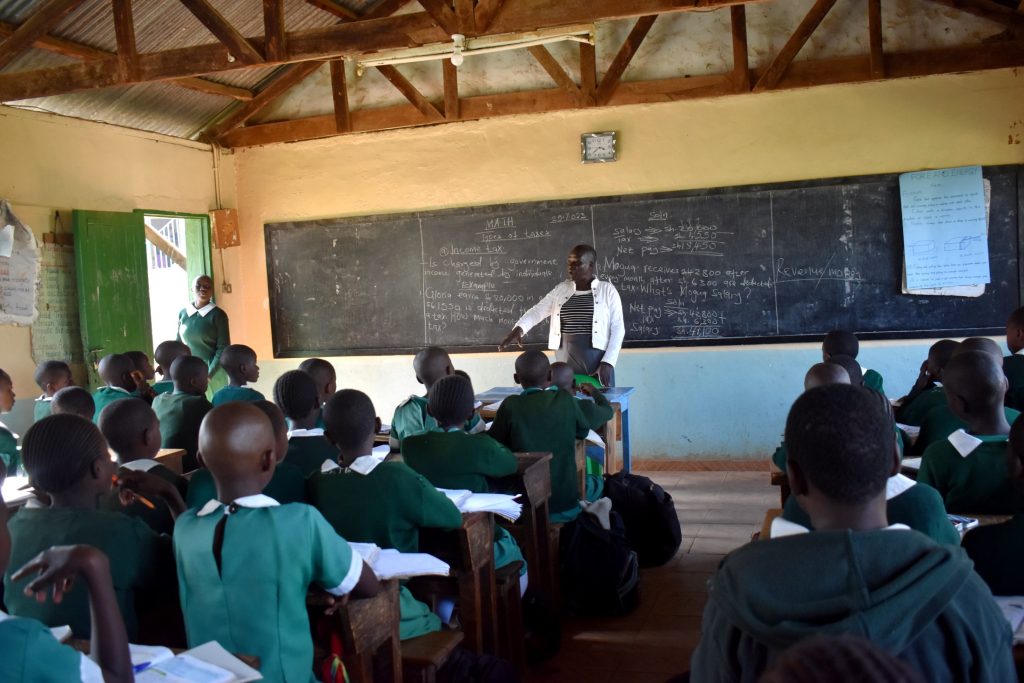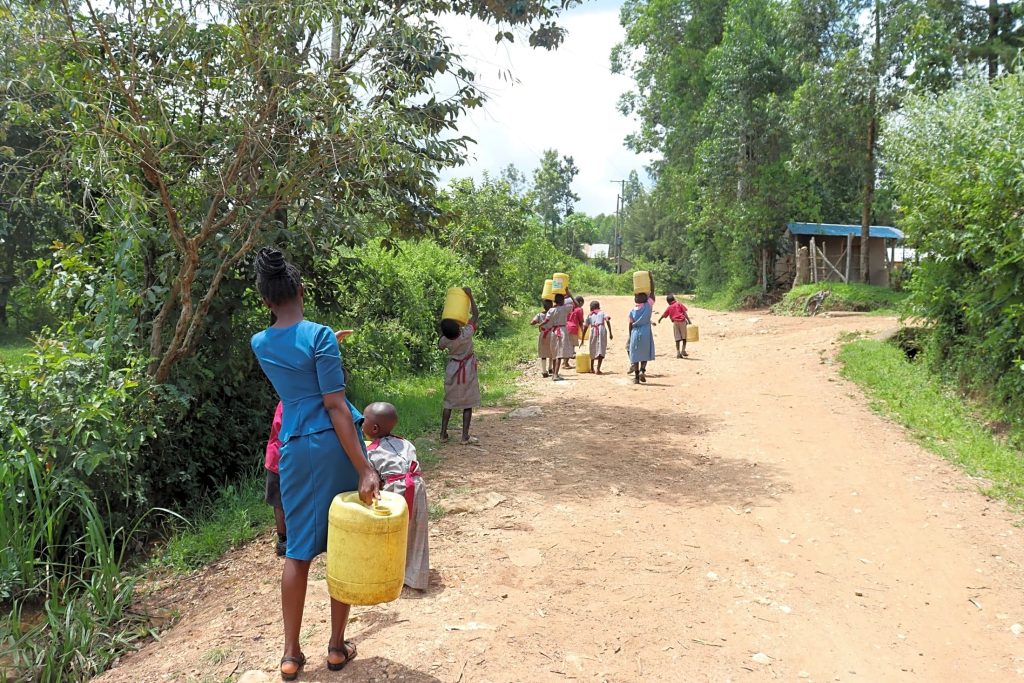Teacher Appreciation Week Spotlight: Water Scarcity and Its Impact on Education
Everyone knows that teachers have one of the most underappreciated jobs in our country today, which is why this week is so important. It’s currently National Teacher Appreciation Week! We encourage you to reach out to a teacher in your life and thank them for all they do this week.
At The Water Project, we love teachers, and we see how hard they work every day, both here in the U.S. — where educators download our free lesson plans to teach our younger generations about water and its importance — and in sub-Saharan Africa, too. There, teachers face an additional challenge, with reliable water access available to only 45% of schools, leaving teachers struggling to properly cover their syllabi as students take time away from learning to go fetch water.
However, it’s not just curriculum coverage that teachers struggle with in the communities where we work. They must also protect their students from wayward motorists on the paths to water sources. Perhaps their biggest challenge is suffering from water-related illnesses alongside their students, making it hard for anyone to get any teaching or learning done.
Today, you’ll read a few stories of the hardships teachers in sub-Saharan Africa encounter — hardships they wouldn’t experience with water sources directly on school grounds.
Kankaylay Islamic Primary School
“The problem of water has been affecting me as a teacher, and the school children,” said 33-year-old Isata, who teaches at Kankaylay Islamic Primary School in Sierra Leone. This school is currently raising funds for its own borehole well.
“We only access water across the Port Loko Road. The school children must cross the road to fetch water, and this may expose them to being hurt by vehicle or motorbike.”
“Another challenge we face in our school is the school feeding program,” Isata continued. “Every day, our school children fetch water for the preparation of food. This will be delayed. Also, we need enough water to drink—the lack of enough water delays school children and staff not eating on time.
“We are unable to use the school toilet due to not enough water. For instance, if a staff [member] wants to use the toilet, they always go to the nearby houses. This will cause us, the teachers, [to] not complete lessons.”
It’s incredibly disheartening for teachers to be unable to complete their jobs correctly due to circumstances outside their control, no matter where they come from.
St. Jude Shikoti Girls Boarding Primary School
45-year-old Pamela Waweri from St. Jude Shikoti Girls Boarding Primary School in Kenya shared, “We have recently had to go get water from the well more times than normal, and the trip to the well is usually dreadful to the teacher sent to watch over the students. They usually use this opportunity to misbehave, and some of the community members are difficult to deal with. At times, the lines are too long, which ends up eating into your teaching time.”

And although the students struggle to collect water, the health implications of drinking dirty water or going without water entirely are even worse than not going.
Lunyelelia Primary School
“There is time wastage to follow up with pupils when going to the spring since they are still young and need an adult to supervise them and guide them on the road,” said 29-year-old teacher Harriet Busieka from Lunyelelia Primary School in Kenya.


“Many of them fetch water without washing [their] hands, so with dirty hands, [they] hold the fetching container and contaminate the water. This way of mishandling the water causes diarrhea and typhoid, which has affected me and them severely. [The] lack of enough water makes us wash classrooms once per week, thus making it hard for us to maintain pupils’ hygiene.”
Kandwia Primary School
The bottom line is that a lack of water leaves both students and teachers demoralized.
“I love this school so much,” said teacher Erick Muthwii from Kandwia Primary School in Southeast Kenya.
“I believe this is the best school, just that we lack water, which is [a] basic need here. I have [a] hard time trying to control such a crowd with minimal drops of water. The pupils have a big trust in me, and whenever I fail to have water in school, I feel like one big failure being looked at by over 500 pupils.”
As Erick said, water is a basic need, and no school — and no person — should have to go without it, especially in an environment where students are meant to be safe and learning and teachers are meant to be supported and empowered to do their jobs well.
Conclusion
With your help, we’re working toward a day when every school in sub-Saharan Africa can access clean water right on school grounds. Only then will teachers in our work areas be able to fulfill their potential as educators and send their students off to their futures with confidence.
With all the challenges shared by Isata, Pamela, Harriet, and Erick, it’s evident just how critical a reliable water source is to the functionality of schools and the effectiveness of our dedicated educators. A lack of water diminishes the potential of future generations.
This Teacher Appreciation Week, while we celebrate teachers around the world, let’s also recognize the unique challenges faced by teachers in sub-Saharan Africa.
Home More Like ThisTweet